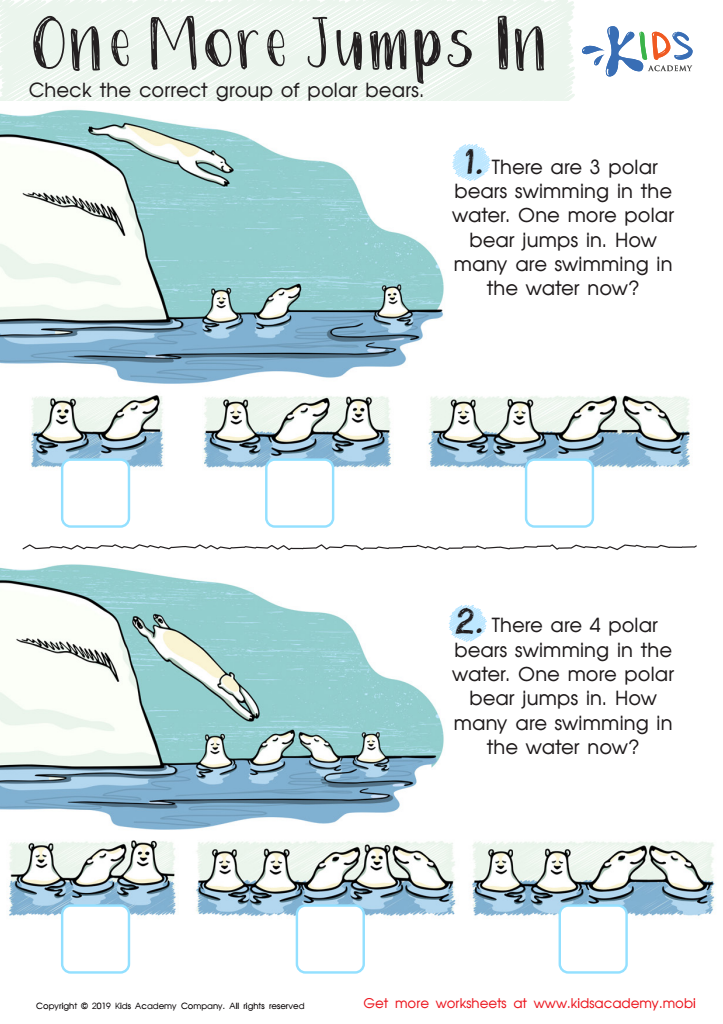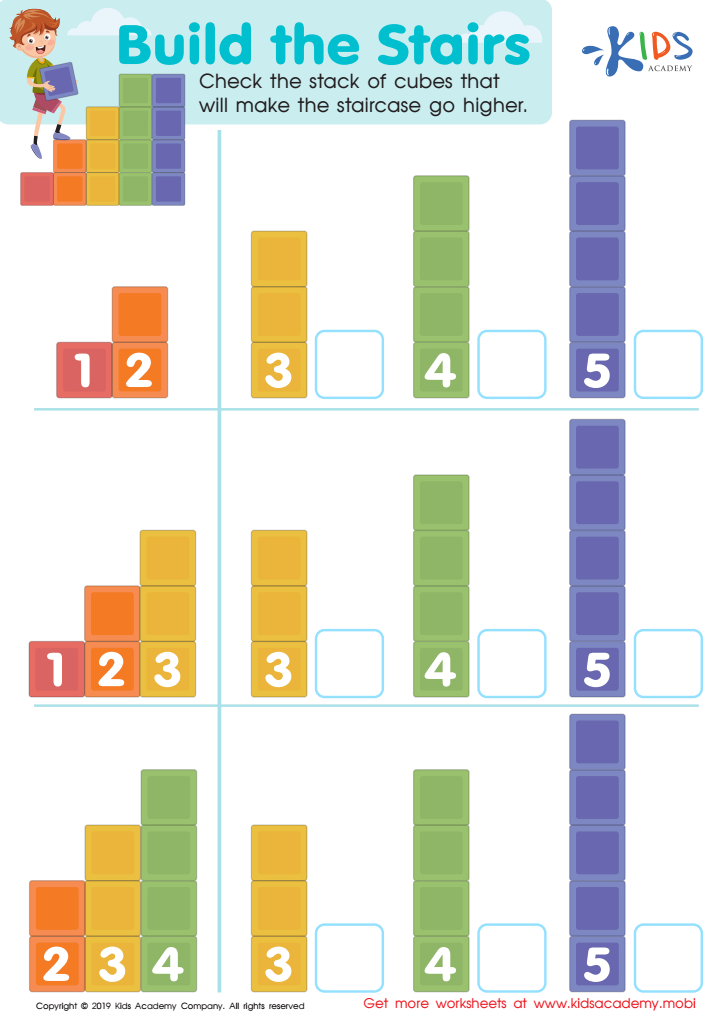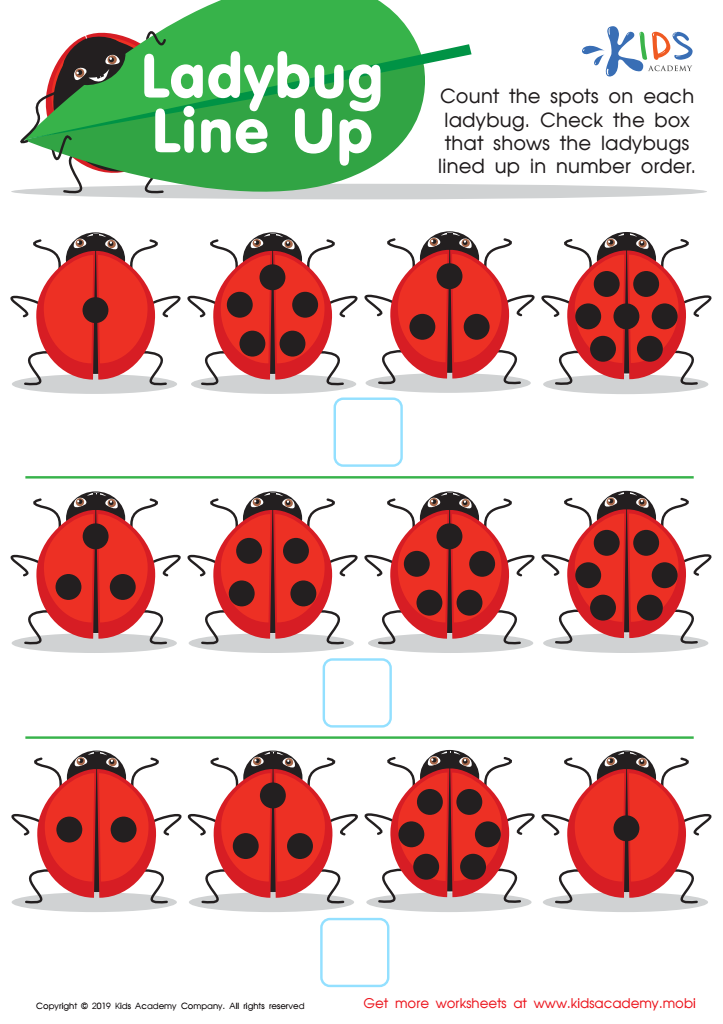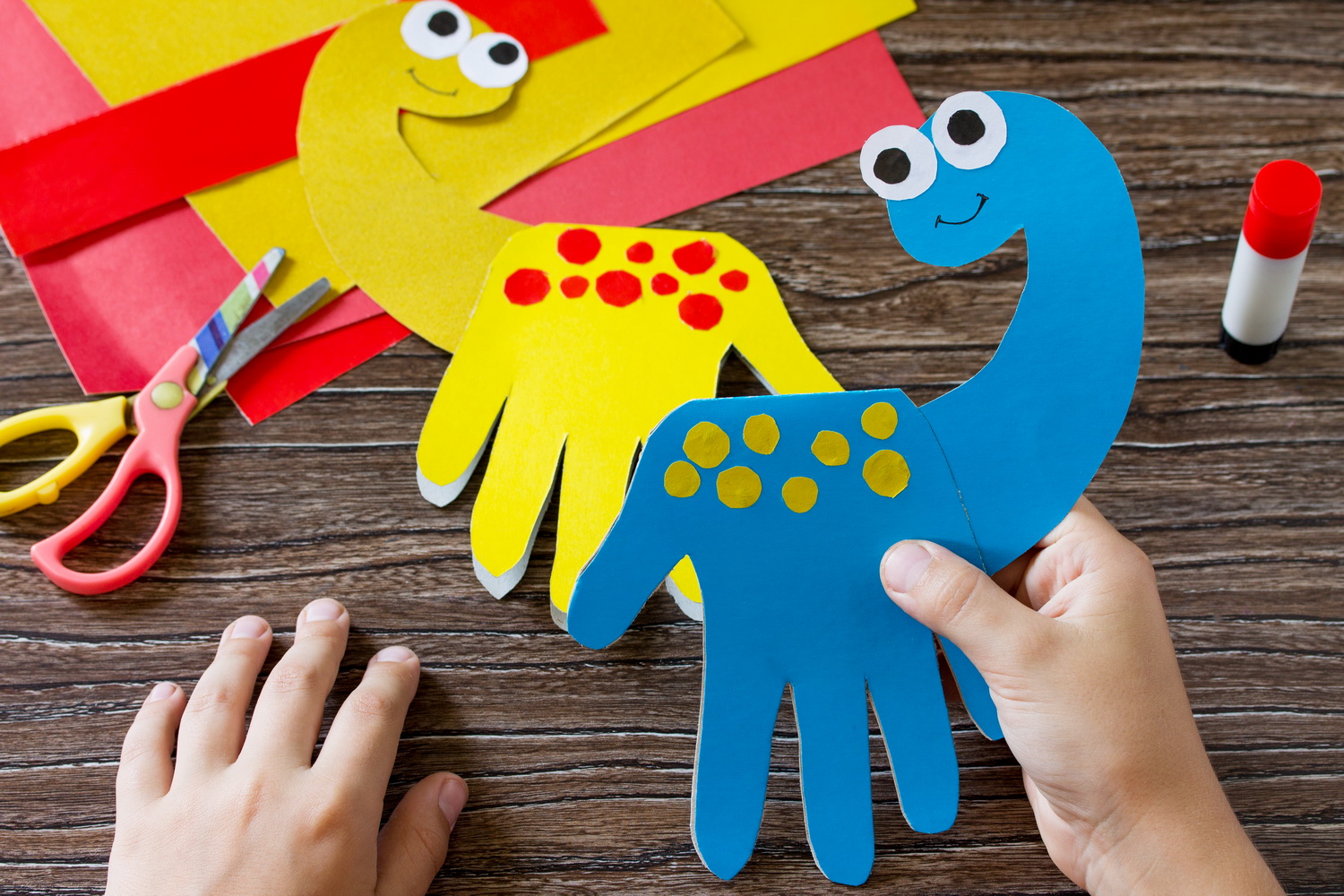Understanding sequencing Easy Worksheets for Ages 4-5
3 filtered results
-
From - To
Explore our "Understanding Sequencing Easy Worksheets" designed specifically for children ages 4-5! Sequencing is a crucial skill that lays the foundation for logical thinking and storytelling. Our engaging worksheets help young learners recognize order in everyday activities and events. With colorful illustrations and age-appropriate exercises, these worksheets provide a fun way for children to practice sequencing through simple tasks like arranging pictures and completing stories. Whether at home or in the classroom, these resources foster critical thinking, enhance comprehension, and encourage creativity. Perfect for early grade teachers and parents, our worksheets make learning effective and enjoyable! Start your child’s adventure in sequencing today!


One More Jumps In Worksheet


Build the Stairs Worksheet


Ladybug Line Up Worksheet
Understanding sequencing is fundamental for children aged 4-5 as it provides the building blocks for essential skills in literacy, mathematics, and everyday problem-solving. Sequencing involves arranging events or ideas in a logical order, which helps children make sense of the world around them. For parents and teachers, this skill fosters critical thinking and enhances reading comprehension—children learn to recall story events and predict outcomes, making them more engaged readers.
Moreover, sequencing plays a vital role in developing problem-solving abilities. When children learn to sequence steps in a task, like a simple recipe or a daily routine, they gain independence and better organization skills. Promoting active sequencing reinforces memory, as children practice recalling the order of events, aiding retention and understanding.
Socially, sequencing aids in communication; children can articulate their thoughts more clearly by organizing them logically. Incorporating sequencing activities—such as storytelling, sequencing cards, or interactive games—can make learning enjoyable while establishing a strong cognitive foundation. Ultimately, investing in sequencing instruction supports holistic development, paving the way for future academic success and daily life skills, making it an invaluable focus for educators and caregivers.

 Assign to My Students
Assign to My Students















